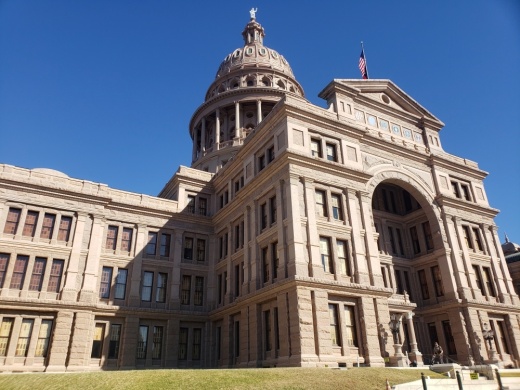Editor's note: This story was updated to include additional comment from State Rep. Mary Gonzalez, D-El Paso, on an amendment she proposed for the bill.
Gov. Greg Abbott signed a bill into law on Sept. 9 that will expand remote learning possibilities during the pandemic for independent school districts and open-enrollment charter schools.
Senate Bill 15, authored by Sen. Larry Taylor, R-Friendswood, the chair of the Senate Education Committee, made its way to Abbott on Sept. 1. The law allows ISDs and open-enrollment charter schools to set up virtual learning while keeping state funding, according to John Theis, a political science professor at Lone Star College in Kingwood. The law allows school districts to implement virtual learning without risking the loss of state funding. Districts previously needed to guarantee in-person enrollment to receive funds.
Theis described the law as a “trial run” for virtual learning, noting that it encourages virtual learning until 2023, when a future legislative session can observe how ISDs implemented their programs.
“School districts will have to prove that it actually works,” Theis said.
One subsection of the law allows ISDs to contract with each other for one district to send students to another district’s virtual learning program. Theis said one possibility of that provision could be larger ISDs absorbing virtual students from smaller districts.
“Bigger school districts may contract with smaller districts that don’t have the resources to manage a virtual program, and could potentially make more money from that,” Theis said.
There is no specification on how many contracts a school district can sign with another district.
The bill went through several amendments in the House and Senate, three of which failed. One amendment, authored by Rep. Mary Gonzalez, D-El Paso, would have required virtual options for bilingual students. Gonzalez said the demographic of bilingual students have been among the hardest hit by pandemic-related educational disruption.
"Bilingual students need and deserve equitable access to optional remote learning programs," Gonzalez said in a statement. "While my amendment was not adopted, I hope school district leaders will recognize the necessity of including bilingual education in remote learning options and fulfill their responsibility to bilingual students in their communities."
Theis noted several “guardrails” in the law, which include a cap on how many students can opt into virtual classes per district, set at 10%.
The law specifies that teachers for virtual classes must have completed a course on online instruction, and they cannot teach students both virtually and face-to-face in the same class period. Theis said the provision would prevent teachers from having to juggle “mixed” classes of face-to-face and virtual students.
Theis said he does not anticipate the governor calling the Legislature back into session for any further adjustments to education during the pandemic.





